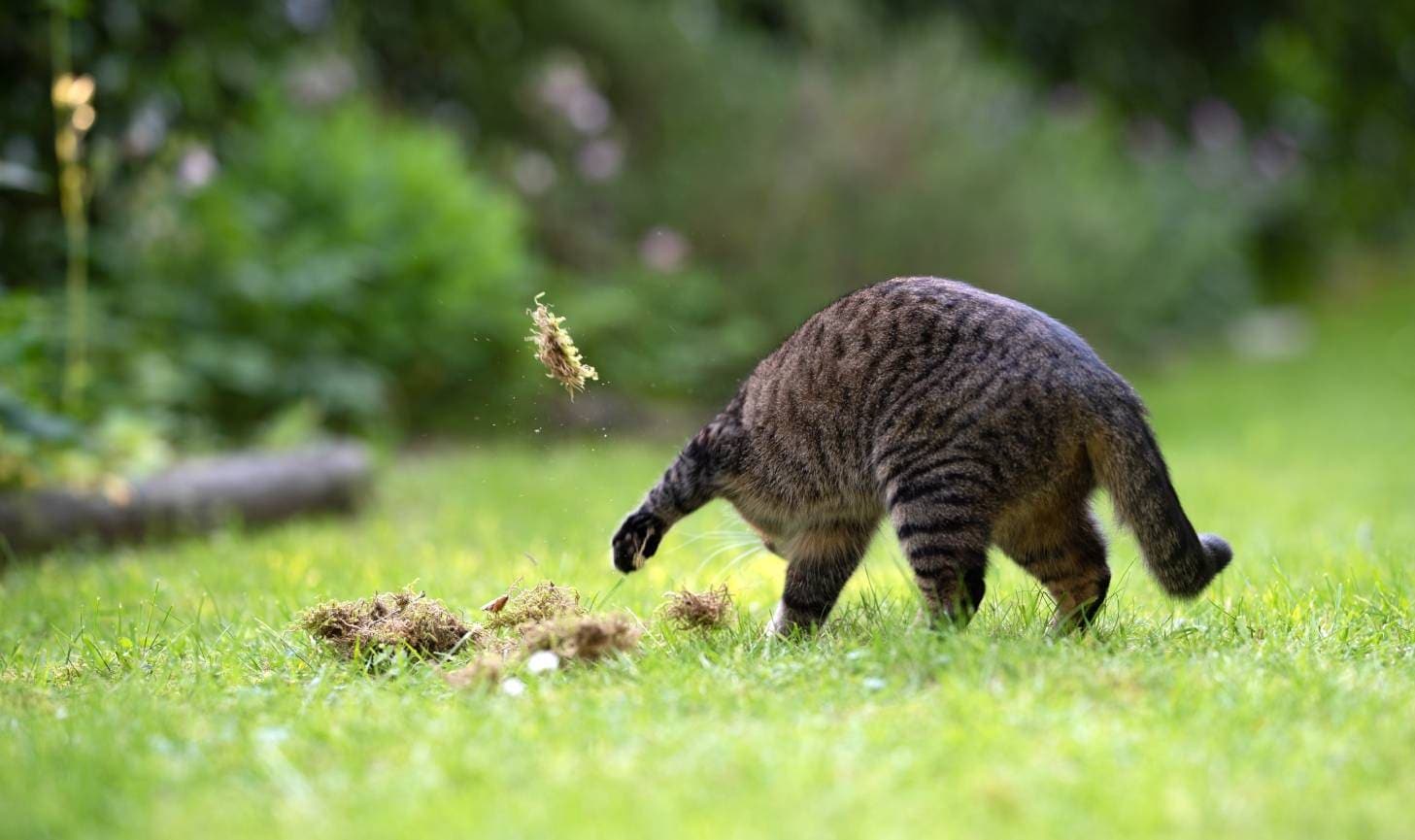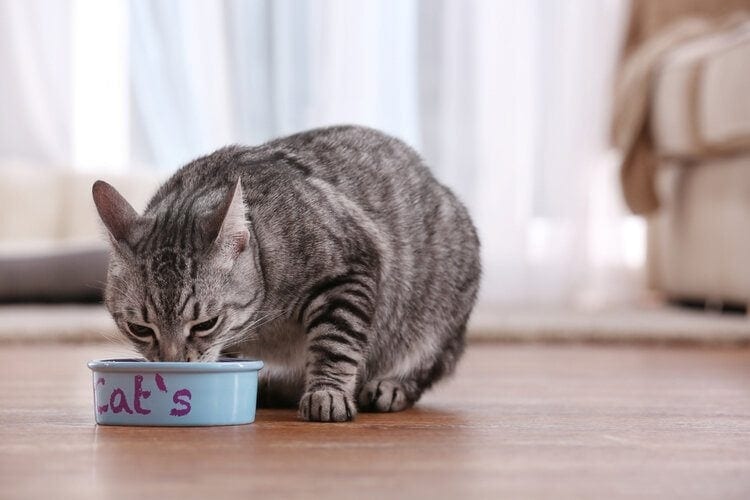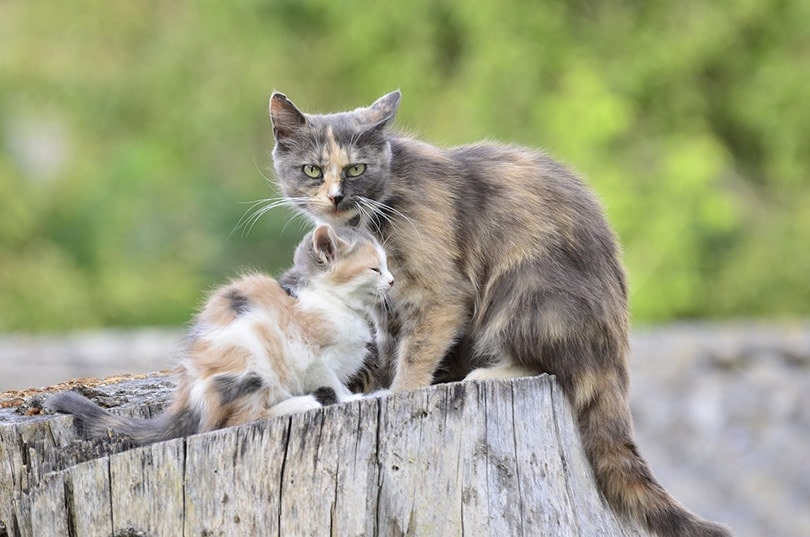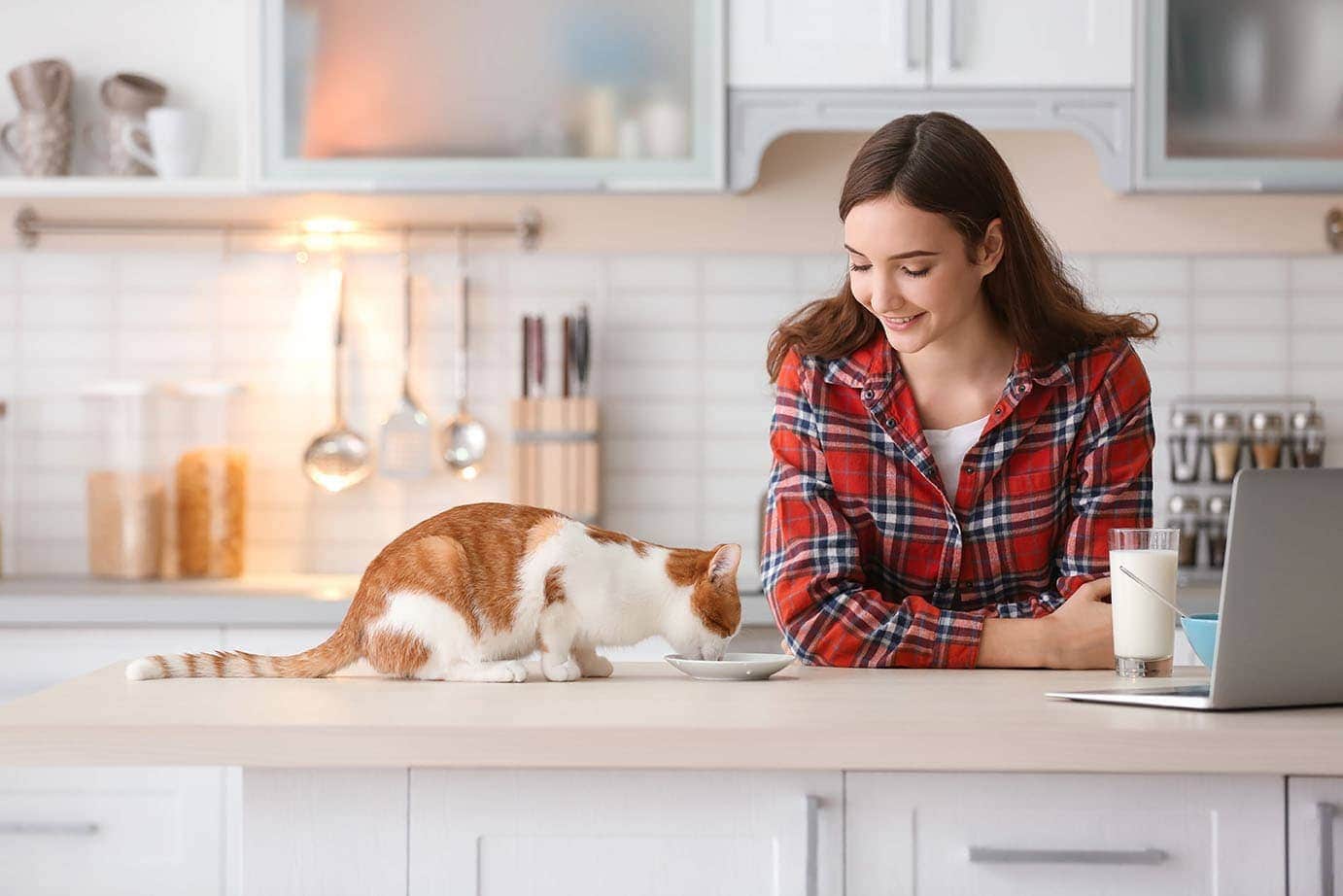Why Do Cats Sometimes Bury Their Food? 6 Vet-Reviewed Reasons for This Behavior

Updated on

Cats have a lot of behaviors that we humans find unusual and, frankly, a bit odd. In most cases, though, there are natural and instinctive reasons for their behavior. Sometimes, these actions can seem amusing and cute but actually be a sign that something is wrong. In other cases, owners might worry unduly about something that is a perfectly innocuous pattern.
Burying food, which is called caching when performed by wild cats, is a natural behavior. It usually refers to the cat scratching the floor near their bowl. They aren’t actually burying the food, but that is what they are attempting to do.
Read on to find out whether this is an innocent action or whether it means that something could be wrong with your kitty, and to see whether there is anything that can be done to prevent it.
The 6 Reasons Why Cats Bury Their Food Sometimes
1. Saving It for Later
Cats are like humans. Sometimes, they are ravenous little creatures that will eat anything you put in front of them. Other times, they have less of an appetite and cannot eat every morsel of food you place in front of them.
If your cat isn’t feeling that hungry, they may be attempting to bury their food to keep it safe and so that they can come back to finish it off later. This may be more common with cats that are given wet food at set mealtimes, but it can happen with the dry food that is left out for grazing as well.
Wild cats do this in order to save their energy if they are not able to eat the whole prey at one time. This way, they don’t need to hunt again when they’re hungry. Instead, they return to their food stash and eat the rest.

2. Protecting It From Others
If you have two or more cats in your household, or if you have a cat food-stealing dog that resides with you, your cat could be attempting to protect their food from others. This goes somewhat hand in hand with trying to save the food for later. They can’t eat the whole lot in one go, but if they leave it, another animal may come along and scoff the lot.
In the wild, cats would bury leftovers so that they can come back to it when they are hungry, confident that other animals would not be able to locate it. But this way, they are also masking the scent not just of the food but also of themselves in order to protect their whereabouts from potential predators and competitors.
3. Reserving It for Kittens
If you have a female cat that recently had kittens, or you have both mother and young kittens at home, the adult cat could be trying to save food for the young ones. The majority of cats are naturally maternal, so they will do what they can to ensure that kittens eat and stay healthy.
Paramount to a kitten’s health is a steady supply of good food, and the mother cat knows this. But this way, they also hide the scent of food from predators and protect the location of their kittens, particularly if they are hiding them close to the food source.

4. Food May Be Spoilt
If the food has gone bad, your cat will not eat it. This is common with wet food that sits out for too long in the food bowl and is more easily spoiled. Your cat may attempt to bury it in this case. Make sure the food is stored appropriately if not eaten within an hour, or even less in very hot and humid weather. Check the date on the package and ensure that the appearance, texture, and smell are adequate.
5. Too Much Food
If you overfeed your cat, they are more likely to feel the need to bury what is left. This can be a problem with rescue cats that might not have been given enough food earlier in life, especially with stray and feral cats, and for this reason, you may be automatically giving them more food that they need or can actually eat.
It could be a sign that you are feeding too much food for your cat’s needs. It may also be a sign that your cat is getting food from somewhere else, like the neighbors.
- Keep your cat’s diet in check with our calorie calculator here.
6. Cleaning Up
Although it might not always seem like it, cats are naturally quite tidy animals. They cover their poop when they use the litter tray, and your cat might recognize that bits of food on the floor or even left in the bottom of the bowl is somewhat untidy. A cat might try and tidy up food, even dry kibble, if they do recognize it as being messy.
Is Food Caching Unhealthy?
On the face of it, burying food is not an unhealthy habit, but you should try and determine why your cat considers it necessary to do so. If they are burying food because they can’t eat everything as they are not hungry and want to leave some for later, it means that you need to take some action to ensure that they are getting an adequate amount of a well-balanced diet according to their individual needs. Speak to your veterinarian about the required amount and type of food for your cat.
How to Prevent Burying
Find the cause of the burying and try to resolve the issue. Ensure that you feed the right amount of food per day, and if you feed at mealtimes rather than offering food to graze on, ensure that it is split into several smaller meals over the day.
Do not pull the food up as soon as your cat stops chewing. Allow them a little time to take a rest and come back to eat more, and if you are feeding the right amount but your cat keeps leaving food and trying to bury it, determine if they might be getting food elsewhere or if there might be a related health problem that is causing them to lose their appetite and putting them off food.
If there is no seemingly obvious reason for scratching at their food bowl and trying to bury their food, it could just be an unusual quirk of your cat that is not doing any harm or damage. Ensure that you feed your cat on a hard surface that can’t be easily damaged by scratching, and if they aren’t causing injury to themselves or becoming too obsessed with burying their food, it shouldn’t be causing any problems.

Final Thoughts
One of the main reasons that cats try to bury their food is to mask its scent so they can save a portion of it for later, but also so they can hide their location from potential predators that may harm them and eat their food. Ensure that your cat has a quiet and peaceful dining area, that they can eat without interruptions, and that there is no competition for the food or disturbance from other pets or family members.
If your cat persists in scratching and pawing at their food bowl and there are no underlying health conditions or obvious causes for this behavior, there should be no cause for concern, and you can simply ensure that the floor and surrounding area do not become damaged and that the food does not get spoiled.
Featured Image Credit: Nils Jacobi, Shutterstock












